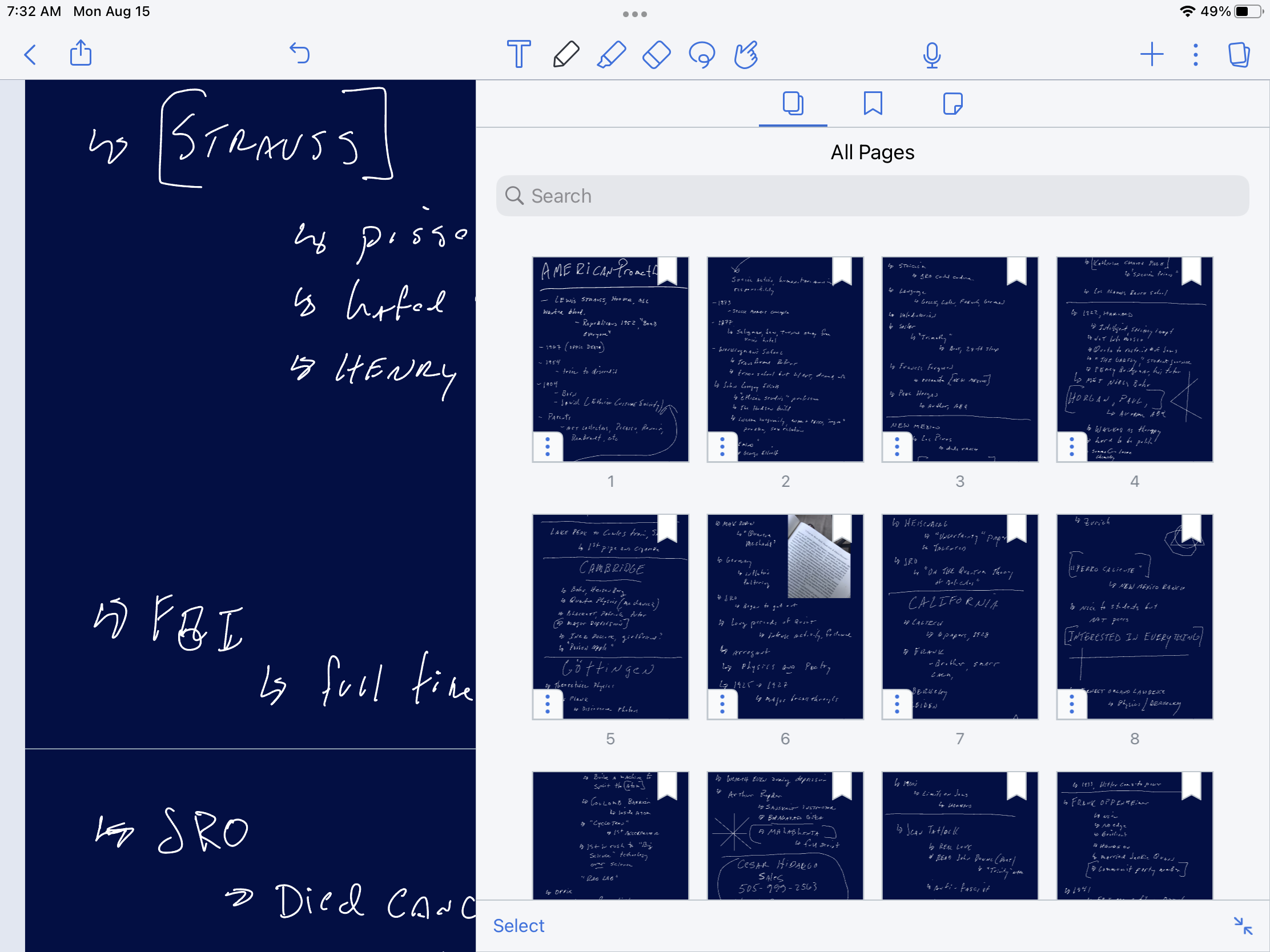This book is not for everyone. American Prometheus, a collaboration between Kai Bird and Martin J. Sherwin is a beast of a book that would crush the attention span of most modern humans. Can I first share my opinion that “Kai Bird” is one of the best names ever and I feel slightly miffed my name doesn’t have the same resonance. Yet another reason to blame my parents. This book took years to compile as the story of one J. Robert Oppenheimer is a complex one to say the least. The book itself is over six hundred pages and took me a month of on-and-off reading to finish. I was never bored and took over thirty pages of notes.

I think most people find me annoying. I like to work. I am in a perpetual hunter/gather state. Writing, shooting, recording. I post a Friday email to our company listing a few of the more interesting things I did during the week. Someone asked “How did you do all this in one week?” I wrote back saying “That’s only a third of what I did, but if I posted what I really did I think that most people would be annoyed more than anything else.” My guess is that Kai and Martin are the same, and after reading this book, I know with certainty Robert Oppenheimer was. In fact, he puts me to shame.
American Prometheus tracks Oppenheimer’s history and does so in detail. This might seem mundane or laborious but it’s not because Oppenheimer never fit in. Could he do physics? Sure. Was his math always perfect? No. But “Oppie” could see how things connect and he could do so from a very high level. And when I say “connect” I don’t just mean the physics. He connected just about everything. He could speak five or six languages, he could read in Greek and Latin and his knowledge base transcended an ultra wide range. One visiting professor said it best.
“I’ve simply never met another human like him.”

Perhaps the word here is “curiosity.” Oppenheimer bled this trait for the duration of his career even when the Red Scare was ruining his reputation, ending his security clearance and destroying his health. He could quote poems and ancient Hindu scripts while also continuing to balance the cutting edge of science. Oppenheimer was a torn individual who used science to create a device designed for genocidal-style killing. He knew this and he did it anyway.
One of my favorite aspects of the book is Oppenheimer’s intense love of New Mexico, something we share in common. (My math scores eliminate all other comparisons.) He lived on a ranch, Perro Caliente, and spent several months a year on horseback excursions through the northern ranges.
But this book is also a cautionary tale and not just about the arms race sparked after the invention of the bomb. This is a cautionary tale of what happens when the military takes over and information about a topic becomes “top secret.” The fear of secrecy stokes the fires of hate. We don’t know what they are doing so we must assume the worst philosophy begins to permeate the highest levels of the government and military. (They also thought they could use these bombs on the battlefield and even had plans to carpet bomb all of the Soviet Union.)
This book also details the destruction a single devious and hateful individual can have on the entire American government, military and society in general. That individual was Lewis Strauss. Working with J. Edgar Hoover and others, Strauss distrusted Oppenheimer and did everything in his power, both legally and illegally, to ruin Oppenheimer. Eventually, after a humiliating public trial, succeeded in having Oppenheimer’s “Q clearance” revoked which was the beginning of the end for Oppie.
Reading this book while watching the current, American right wing political establishment stir the same kind of mindless hate was chilling to say the least. Surprising at this point, not so much, but the parallels are troubling. As I always do, I found strategic moments to bring up this book in conversation only to realize that much of this history has been lost to the modern social media lifestyle of today where posting a selfie wearing an “Oppie style porkpie hat,” is considered “doing research.” People knew the Oppenheimer name but little else about his story or the events surrounding this time period. (I’m not shocked.)
I’m only touching the mantle of what this book provides. His marriages, affairs, battles and the story of his brother Frank are but a few of the many themes pulsing through this book. We owe a lot to “The Father of the Atomic Bomb,” but perhaps more than anything else we own him the time to learn from his mistakes as much as his success. Oppenheimer was far from perfect. He was naive at times and his own worst enemy at others, but there is no denying the mark he left on us and on the world itself. Get it, read it and then pass it along.

Comments 6
Probably too deep for me, but putting it on hold at the library
I’m about 100 pages in. The poison apple incident was certainly eye opening!
Author
Yes, that was telling.
For once, I have already read a book that you feature in the Read section! It is the best of books about Oppenheimer.
Author
Cool. Found another friend who read it as well.
Author
Cool!